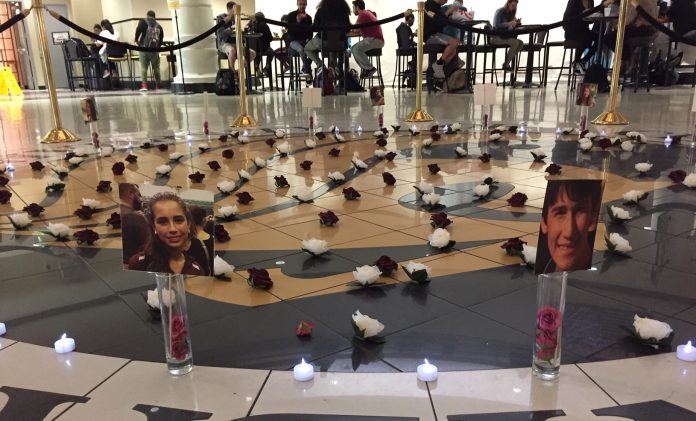
Claims of crisis actors and hoaxes prevent survivors and communities from healing after traumatic events such as Parkland, Sandy Hook and the separation of immigrant children from family members at the southern border, according to a study.
In a study published in the Journal of International Crisis and Risk Management in March, UCF researchers Dr. Timothy Sellnow, Dr. Adam Parrish and Lauren Semenas write, “Those amplifying messages that deny the authenticity of well-documented crises…have the potential to disrupt personal and community-wide healing and to delay or derail the development of positive solutions to recurring crises.”
The researchers studied the consequences of calling Parkland students, Sandy Hook parents and immigrant children separated at the border from their families crisis actors and the events they went through hoaxes.
They argue that these claims impede discourse of renewal, a theory in crisis communication that encourages learning from crises.
“Renewal discourse inspires a prospective vision for ethical change based on the lessons learned from a crisis,” according to the study.
The researchers say they were led to conduct this study after monitoring the social media coverage of last year’s mass shooting at Marjory Stoneman Douglas High School in Parkland that left 17 dead. People online were “very critical of the students, even to the point of denying the crisis itself had actually occurred,” Sellnow said.
Immigrant children separated from their families at the southern border were, too, on the receiving end of hoax claims. In June, conservative commentator Ann Coulter called these children “child actors” meant to put pressure on President Donald Trump to abandon his zero-tolerance immigration policy. “Do not fall for it, Mr. President,” Coulter said at the time.
Five years earlier, after the mass shooting that took 26 lives at Sandy Hook Elementary School in Newtown, Connecticut, Alex Jones, a far-right commentator and founder of conspiracy theory website Infowars, claimed that the massacre was a hoax used to push gun control legislation.
The study states that “these crisis denial claims can energize oppositional forces that resist policy changes inspired by the lessons learned from crisis events.” Parrish added that these hoax claims are used because of the idea that “we don’t have to fix anything if nothing really happened.”
It was reported last week that Mark Richardson, a National Rifle Association official, enlisted the help of Wolfgang Halbig, a Sandy Hook hoaxer, to question the veracity of the Parkland shooting. Richardson wrote to Halbig saying “Just like [Sandy Hook], there is so much more to this story,” according to emails obtained by HuffPost.
UCF professor Dr. Barry Mauer, who teaches a course that examines humans’ proneness to propaganda and self-deception, says that claims of hoaxes are a “classic tool of manipulators and abusers to gaslight their victims,” causing survivors to be “doubly victimized.”
Since March 22, two Parkland survivors, Sydney Aiello and Calvin Desir, and a Sandy Hook victim’s father, Jeremy Richman, were reported to have died of apparent suicide.
The researchers say that the first step toward healing is “recognizing the potential for such claims to do harm, particularly to innocent victims.” They add that companies must practice corporate social responsibility and deny conspiracy theorists access to their platforms, as many have already dropped Jones.
If anyone is having suicidal thoughts or feels like harming themselves they can call the National Suicide Prevention Lifeline at 800-273-8255 or text TALK to 741741.



